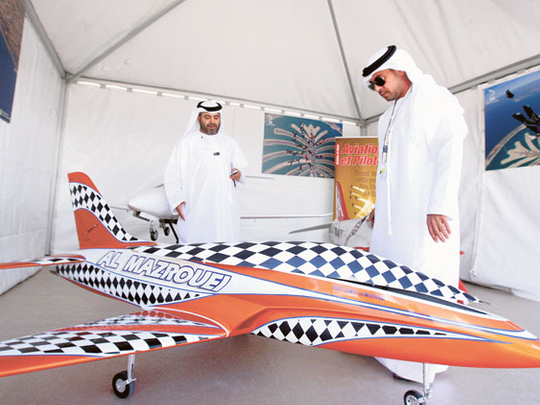
Abu Dhabi: While the Middle East's aviation industry has expanded and is expected to grow even more in the next few years, it is still a very expensive business — one that is pushing private jet operators to look into fleet management in order to help generate more revenue.
"It's very expensive to have an organisation, but if you can give your aeroplane to another person who's already got that organisation you don't have the expense or cost of setting up the operations like we have," said Dr Mark Pierotti, chief operating officer of Al Jaber Aviation (AJA).
AJA currently has a fleet of five aircraft which the company owns, and they're looking to build on that with the launch of management fleet services, including flying, maintenance and commercial services. Pierotti said they're looking to double their fleet size with another five coming under management in the next 12 months.
"I regularly visit owners of aeroplanes trying to bring them under our management," he said.
"To get the licence to do that [manage your own plane] is very expensive, to get the team to do that is very expensive, so someone who owns an aeroplane gives it to someone else to manage because they have the infrastructure. It reduces the costs massively," he said.
Aeroplanes that come under management are typically charged monthly management fees in addition to commissions on sales.
Saudi Private Aviation is another operator that is looking to invest more in fleet management. The operator, which owns ten private planes, is currently managing 28, making up around 50 per cent of the company's revenue.
The government-owned operator, which is less than three years old, has put a management strategy in place to expand its fleet, its managing director Wajdi Alidrissi told Gulf News.
"It's an expensive business and no one can afford or would have the capital to pay," he said.
Grey market
However, the fast-growing industry is facing a great challenge.
The operators speak of an extensive problem within the business aviation industry called the grey market.
"The grey market is an obstacle. Grey market causes enormous headaches," Pierotti said.
The grey market is a result of illegal operators who carry passengers without having the required air operator's certificate (AOC). It is also when operators fly in markets in which they're not authorised.
"It's people who have private aeroplanes operating under a foreign registration and selling their aircraft on the market. They don't have the investment and the infrastructure that we have made to have a safe, professional operation," he said.
Not authorised
"In the GCC, there's an awful lot of grey market which takes money from us, the professional organisations that are trying to do it correctly."
"I call it the black market," said Alidrissi, who believes that it's due to both operators and individuals in the business.
"Let's say an operator is authorised to fly internationally, but not internally… they would fly to Riyadh and then do flights from Riyadh to Jeddah… it happens sometimes," he said, adding that these illegal operations probably account for 30 per cent, if not 50 per cent of the global private aviation business.
The more severe part of the problem comes from individuals who own private jets, Alidrissi said.
"It's like owning a car and a private driving licence and then using that car for taxi services in a foreign country… it affects the other certified taxi drivers, wouldn't it?"












